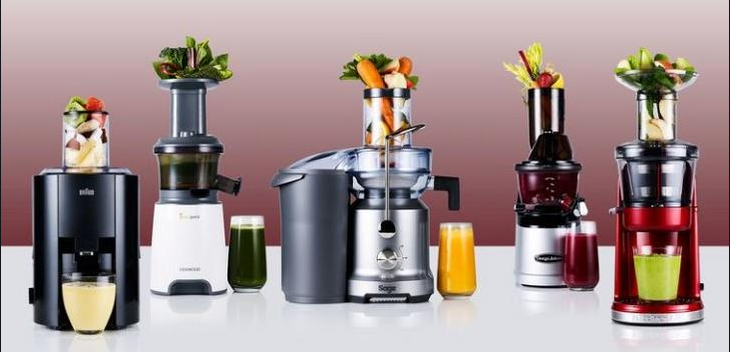Table Of Contents
When it comes to providing your family an instant nutrition supply, getting them or yourself a fresh glass of fruit juice can be the first thing you consider. But without a good juicer, you don’t have much to do about the nutrition supply. If you are thinking about getting yourself a good Juicer and confused about what brand you should go with and what type of juicer would be the best match for your needs, this review could be a good help for you.
In This Article, I will get you a clear view about how the different types of juicers work and will go through a brand which offers all kind of juicers. I hope you will be able to determine what juicer you need and put every aspect separately.
What type of juicer do you need?
Before you go shopping for a juicer, there is a very wide range of Masticating juicers to choose from. There are both slow masticating juicers and centrifugal juicer machines. We will point out how these two types of juicer work at first:
How does a centrifugal juicer work?
The centrifugal juicers chop up the fruits or vegetables with one cutting blade into tiny small pieces with a very high speed of 3000 to 10000 RPM. This makes sure you get a higher yield of fruits and make a nice blend of different types of fruits if you want. Because of its powerful spinning, all the fruits turn into a pulp. Then the pulp goes against a built-in strainer and the centrifugal force separates the juice from the pulp as they try to pass through the strainer.
How does a slow masticating juicer work?
A slow masticating juicer squeezes the fruits or vegetables into yield and makes pulp of it. Then the pulp gets pressed into a hose. It does the juicing process slower than the centrifugal juicers because the blade rotates slower in about 80 to 100 RPM. It rotates slower and makes the fruits or vegetables release more enzymes, vitamins, antioxidants and fibers. The process can be related to the process of your mouth while the teeth masticating a fruit and chew up the pulp. The juice gets squeezed and comes out with a nice mixture to it and the pulp gets pushed out another way.

Difference between the two of them
Speed
If you want to differentiate between the masticating juicers and centrifugal juicers, The first thing comes to the list is the speed. I mean the speed of the blade that cuts the fruits or vegetables into millions of pieces. The rotation speed is the fact here. The higher the RPM (Rotation Per Minute) is, the lower the Juicing time is.
the blae of a centrifugal juicer can operate at somewhere from 3000 RPM all the way up to 10,000 RPM Depending on different models and brands. If you are in a hurry and want the juice to be ready within a very short period of time than a centrifugal juicer is the one you want to go for.
But when it comes to a slow masticating juicer, it can be as low as 80 RPM. This type of juicer is intended to work slow and squeeze the juice out of the fruits with the max amount of nutrition and fiber.
Heat
The second thing I want to address the difference between these two types of juicers is heat generation. As the centrifugal juicers operate with very higher RPM, they produce a lot of heat. But when you are using a slow masticating juicer, it doesn’t produce that much heat as they rotate at a very lower speed.
Now if you think how does the heat matter? Let me tell you two factors about the heat-producing tendency of these two juicers. When you take out the fruite from the fridge, they are cold and it’s much better to eat or drink a glass of juice when it is cold rather than being hot.
When you use a centrifugal juicer to make the juice, you will find the juice a little hot as a result of the higher RPM inside the machine. But when you do the same job with a slow masticating one, it doesn’t produce the same amount of heat. But it takes way too long to juice the fruits. If you’re in a hurry and need a glass of juice within a short period of time, it is recommended to use a centrifugal juicer.
I’ve been going through some Different types of Juicers available in the market and I found the aicok juicer reviews more reliable in terms of customer satisfaction and long term service.
Which one should you choose?
Now the big question is, Which one should you choose? Well, the answer depends on your personal area of choice! If you’re in a need of a glass of juice within a very short time while running to the office or feed the child to the school and you don’t have much time to spare for the juice than a centrifugal juicer is the one you go with.
But if you are having a family gathering, maybe chilling out with friends and family in the summer, and you have enough time to make a nice jar of juice in a slow process but you want the juice to be full of all it’s nutrition and fiber, a slow masticating juicer is the one for you.
Because it is very low at making noise as well. You don’t want any noise around when you’re gossiping with your friends. Centrifugal juicers produce a lot of noise as they spin at a higher RPM.
The price point also matters! Centrifugal juicers will cost you more than a masticating juicer for sure. A centrifugal one will cost you around $200-$300 when a masticating one will be available at $80-$120.






